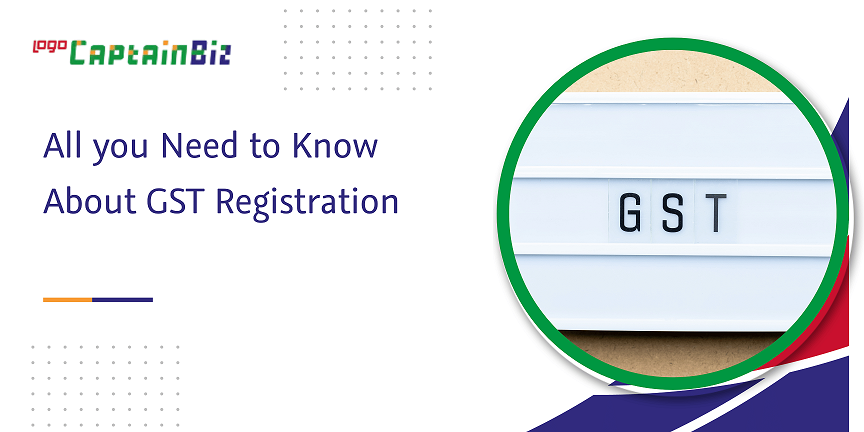From Start to End Up: The Ultimate Roadmap to GST Registration for Businesses Seeking Financial Security
Browsing the intricacies of Product and Solutions Tax Obligation (GST) registration is an essential step for companies making every effort for financial stability. Damaging down the roadmap right into workable steps can improve the registration trip for organizations looking to boost their economic standing.
Recognizing GST Fundamentals
Exploring the fundamental concepts of Item and Provider Tax (GST) is necessary for obtaining a thorough understanding of its implications on services and the economic climate. GST is a value-added tax obligation imposed on a lot of items and services for domestic usage. It has actually changed numerous indirect taxes that existed in the pre-GST period, simplifying the tax structure and boosting simplicity of doing company in India. Under the GST system, both services and items are tired at a particular price, which is figured out based on their category. If their yearly turn over exceeds the threshold limit established by the federal government, companies are required to register for GST. Input Tax Credit Rating (ITC) is a significant feature of GST, enabling companies to claim credit scores for tax obligations paid on inputs, reducing the overall tax obligation burden. Recognizing the basics of GST is critical for businesses to follow tax obligation laws, manage their finances efficiently, and add to the country's financial growth by taking part in a transparent tax system.
Qualification Criteria for Enrollment
To register for GST, businesses need to satisfy specific eligibility criteria established by the government. The main eligibility need is that any kind of service entailed in the supply of items or solutions with an annual accumulation turnover over the threshold restriction set by the authorities have to register for GST. As of the current laws, the threshold restriction for GST registration is an annual aggregate turn over of 40 lakhs for companies operating within a state, besides unique classification states where the restriction is 20 lakhs. Furthermore, certain businesses are called for to sign up for GST regardless of their turn over, such as interstate providers, informal taxed individuals, and businesses accountable to pay tax under the reverse fee mechanism. It is essential for services to completely assess their turnover and transaction kinds to identify their GST enrollment obligations precisely. Failing to sign up for GST when eligible can bring about penalties and legal effects, making it important for companies to adhere to the defined qualification criteria.
Files Needed for Enrollment
Having fulfilled the eligibility standards for GST enrollment, organizations must currently ensure they have the requisite documents in area to proceed with the registration process effectively. The documents needed for GST registration typically include proof of business constitution, such as collaboration action, registration certification, or incorporation certificate for various types of services. In addition, services need to provide files developing the primary place of company, such as a rental arrangement or electricity costs.
Step-by-Step Registration Process
Commencing the GST registration process entails a series of structured actions to guarantee a smooth and certified enrollment for services. The primary step is to see the GST website and complete the enrollment form with precise information of business entity. Following this, the applicant obtains a Short-lived Referral Number (TRN) which is used to resume the application process if it's not completed in one go.
Next, all called for papers as per the list supplied by the GST portal need to be posted. These records typically include evidence of organization registration, address and identification proofs of marketers, economic declarations, and business entity's PAN card.

Post-Registration Conformity Standards

Final Thought
Finally, organizations looking for economic stability should recognize the basics of GST, satisfy qualification criteria, gather essential papers, adhere to the step-by-step registration process, and follow post-registration guidelines - Best GST registration services in Singapore. By sticking to these steps, businesses can guarantee conformity with tax guidelines and preserve economic stability over time
Furthermore, certain services are needed to sign up for GST irrespective of their turn over, such as interstate distributors, laid-back taxed persons, and businesses Extra resources accountable to pay tax obligation under the reverse fee system.Having met the eligibility standards for GST enrollment, services should now ensure they have the requisite records in area to proceed with the registration process efficiently. The papers required for GST registration usually consist of proof of organization constitution, such as partnership act, registration certification, or unification certificate for various types of organizations. In addition, organizations require to supply documents establishing the major area of company, such as a rental agreement or electrical energy expense.Beginning the GST enrollment procedure includes a collection of organized actions to ensure a seamless and compliant enrollment for businesses.